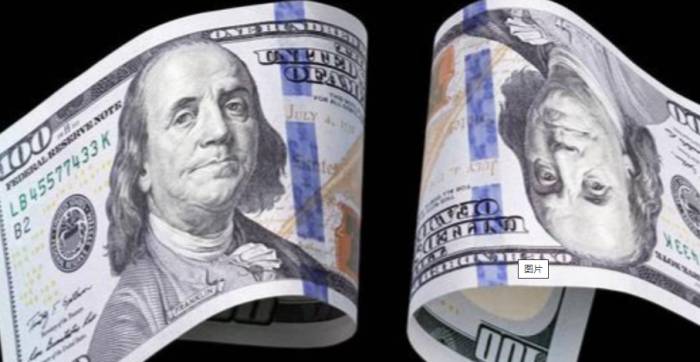Protecting Market by Not Selling US Debt; Yen Faces Collapse
So far, Japan has spent 9 trillion yen to intervene in the exchange rate, but the exchange rate between the US dollar and the yen remains high at 1:152. From the data, it is clear that Japan's path to saving the yen exchange rate is still very long.
It should be noted that during Shinzo Abe's tenure, the exchange rate between the US dollar and Japan was only 1:120, but now it has been pushed to 1:152, and even 1:160, which is a significant drop.
Due to the substantial devaluation of the yen against the US dollar, it has directly led to a reduction in yen assets. When calculated based on Japan's monetary wealth, this reduction has resulted in a 2.1% evaporation of Japan's total monetary wealth.
To describe Japan's current situation in one sentence, it would be "how can a single word 'devastated' suffice."
Perhaps many people do not understand what 2.1% means. It is important to know that Japan's GDP in 2023 was 4.2106 trillion US dollars. If calculated based on GDP, it is equivalent to an evaporation of 0.0884226 trillion US dollars.
That is to say, 88.4226 billion US dollars have evaporated.
Many people might see that Japan has only evaporated 88.4 billion US dollars and think the problem is not significant. However, do you know how much gold reserves Japan has?
Japan's gold reserves amount to only 765 tons, which is approximately 38 billion US dollars when converted to US dollars. The wealth that Japan has evaporated this time is even more than twice the value of its gold reserves.
Seeing this, do you understand the seriousness of the problem?
As mentioned earlier, Japan has spent 9 trillion yen to intervene in the exchange rate. According to the current exchange rate of 1 US dollar to 152 yen, then 9 trillion yen is equivalent to 59.04 billion US dollars.It's important to know that the total value of Japan's gold reserves is only $38 billion, and Japan's current expenditure on currency intervention has already exceeded the value of its gold reserves.
Of course, Japan has a lot of foreign exchange, totaling a staggering $1.17044 trillion.
Seeing this foreign exchange data, does everyone think it's impressive?

However, don't be too quick to celebrate, because in these total U.S. dollar foreign exchange reserves, the amount of cash Japan holds is pitiful, roughly only $150 billion. In addition to this, Japan's foreign exchange is basically in the form of U.S. Treasury bonds.
Do you know what this means for Japan?
This means that if Japan does not sell U.S. Treasury bonds, then the U.S. dollars it can use to interfere with the exchange rate are only $150 billion. If you also consider the gold reserves worth $38 billion, then the total amount available for interfering with the exchange rate is only $188 billion.
Now, Japan has already used $59.04 billion to intervene in the exchange rate (actually used $60 billion, because the yen exchange rate fell to 160 before). So, without selling U.S. Treasury bonds, Japan can only use $128 billion (calculated by spending $60 billion) for interfering with the exchange rate.
$128 billion, in theory, should be enough for Japan to interfere with the exchange rate for a while, but don't forget, Japan cannot use all its cash U.S. dollars to interfere with the exchange rate.
Japan is a global trade power, and it also needs to use U.S. dollars to buy oil, natural gas, and other raw materials or import goods from other countries.
Japan's "hand" is now very transparent, and anyone can see it clearly. Without selling U.S. Treasury bonds, the U.S. dollars Japan has on hand for interfering with the exchange rate are pitiful.Selling off U.S. Treasury bonds is a difficult move for Japan to make. On one hand, Japan is considered a "vassal state" of the United States and must act according to U.S. demands. On the other hand, the U.S. would certainly not allow Japan to sell off its Treasury bonds. As the largest foreign holder of U.S. debt, Japan's sale of these bonds could deal a fatal blow to the current state of the U.S. It seems that short sellers have seized on this vulnerability of Japan, and thus are boldly and relentlessly profiting from the yen's decline.
The shorting of the yen this time represents a significant disaster for Japan. Judging from the current situation, it appears that Japan may not be able to escape this predicament.
[Statement: Personal opinion, for reference only.]
Post Comment